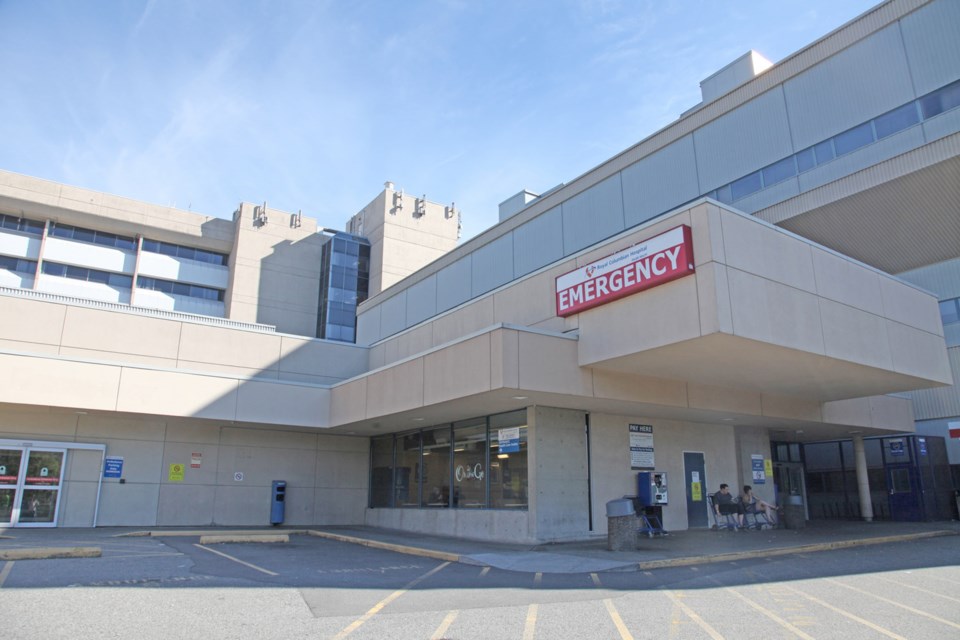A superbug outbreak at Royal Columbian Hospital has sparked criticism about the state of the aging facility and the dire need for its redevelopment
But the Ministry of Health and the health authority say plans for the hospital's redevelopment are on target - and Fraser Health is issuing assurances that the outbreak is being handled safely.
On Tuesday, Fraser Health announced an outbreak of CPE (carbapenemase-producing enterobacteriaceae) in one medical unit, 5N, at the hospital. Five patients are affected and are being cared for in a separate space with dedicated staff and equipment.
Dr. Elizabeth Brodkin, executive medical director for infection prevention and control at Fraser Health, is assuring patients and families that they shouldn't worry about the safety of the hospital.
"Royal Columbian is a very safe place to receive care," she said in a video interview provided by Fraser Health.
Brodkin said the health region has been anticipating the arrival of the bacteria for some time because it has shown up in other parts of the world where local residents have strong ties. A Fraser Health backgrounder notes that the bacteria is endemic to South Asia, as well as to some parts of the United States and Greece.
"It was inevitable that we would see this in British Columbia, and particularly in Fraser Health," Brodkin said. "We knew it was just a matter of time before we began seeing it."
She said the outbreak was declared because the infection control measures put in place had not slowed it down as much as anticipated.
New Westminster MLA Judy Darcy, the NDP's health critic, was quick to react to the announcement.
"The Liberal government's failure to take action and address the chaos at Fraser Health is putting patients at risk," she said in a release on Wednesday. "It's clear the issues of hospital overcrowding, hallway medicine and understaffing have not gone away but rather are compounding the spread of a dangerous superbug at Royal Columbian Hospital."
Health Minister Terry Lake was away and not available for comment. The ministry referred questions regarding hospital conditions to the health authority.
Fraser Health spokesperson Erin Labbe agreed the hospital's aging infrastructure makes infection protection and control difficult.
"It does make it more challenging as an older site may not have the modern infection control infrastructure in place," she said by email. "As RCH is an older facility with most rooms being occupied by multiple people, isolating patients is a necessary and effective control measure."
Darcy was also critical of what she sees as the lack of progress on a review of the operations of Fraser Health.
"Unclean hospital conditions and the treatment of sick patients in hallways are simply unacceptable and should never have been allowed to go on for so long," Darcy said. "The health minister promised back in November that he would fix these problems, but it's not three months later and the outcome of the review isn't expected until early summer."
The ministry provided this statement in response to The Record's inquiries: "To support the Fraser Health Board in addressing the challenges they face, the Minister of Health directed them to produce a new three-year strategic and operational plan and put in place a review committee comprised of B.C. health leaders to support the board's development of this plan. That review and the creation of the plan is ongoing and on schedule. A final plan is to be presented to the Minister by May 31, 2014. Fraser Health will be regularly reporting back to the minister on progress over the next three years."
Labbe noted that work on the redevelopment of Royal Columbian Hospital is proceeding.
Current renovations to its emergency department are expected to be complete by early 2015. Fraser Health is also continuing to "work diligently" on plans for the full hospital redevelopment announced in April 2013 - including additional beds, a larger emergency department and new surgical suite and consolidation of critical-care beds, along with renovations and upgrades to existing spaces.
The first component of the redevelopment will see the Sherbrooke Centre replaced with a new mental health building.
Labbe said the business case for that phase is nearing completion and will be submitted to the Ministry of Health for approval in the coming months.
"The current emergency department renovations will ensure the hospital is able to continue delivering care and meeting patient needs while plans move ahead for the full redevelopment," she said.
Brodkin said it will be at least another month before Fraser Health will be able to declare the outbreak over, because CPE is slow to colonize.
In the meantime, she said visitors are welcome but are being asked to practice "really good hand hygiene" to help keep both visitors and patients safe.
*
Fraser Health also provided these tips for helping to prevent the spread of CPE:
* Inform your health-care professionals if you've had a medical procedure done recently while travelling to another country
* Wash hands often, especially after going to the bathroom and before preparing and eating food
* Do not share personal care items such as towels, toothbrushes or bars of soap.
* Clean bathrooms and other frequently touched surfaces, such as light switches and water taps) once per day, or more often if visibly soiled
* Wash non-disposable cleaning cloths after each use.
* Keep clean dressings on open, draining wounds.



